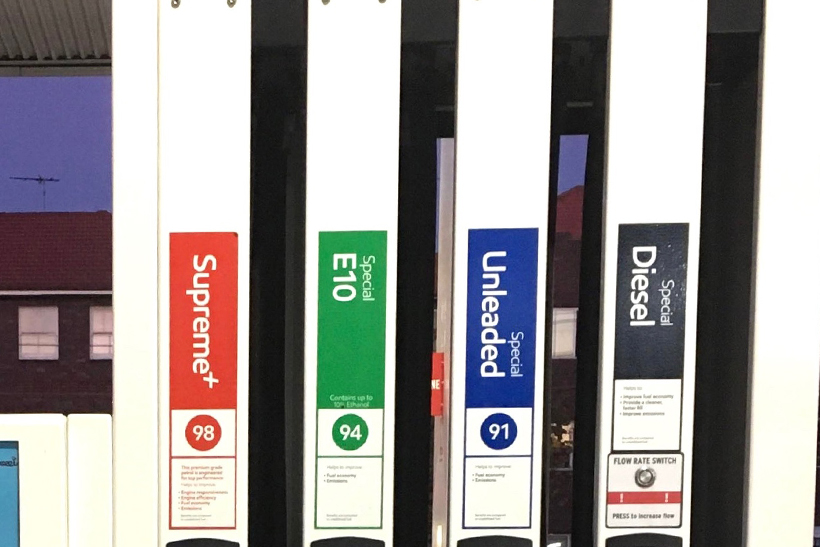Classic car owners face a headache on the forecourt as a new generation of potentially damaging ‘green’ petrol could be introduced by 2020 – a move that could mean forking out much more at the pumps to ensure at least a million of the UK’s older vehicles are not affected.
On July 20, The Department for Transport began a consultation period regarding the introduction of E10 petrol to “larger forecourts” in the UK, with the aim of helping the UK to meet its domestic and international climate change commitment. E10 is a biofuel made up of 90 per cent regular unleaded and 10 per cent ethanol – hence the E10 name. Unlike regular unleaded petrol, ethanol absorbs carbon dioxide, partially offsetting greenhouse gas emissions. However, while E10 has become widely available in several other European countries and elsewhere, no supplier has yet sold E10 in the UK despite being permitted to do so and the debate over its sale rumbling on for several years.
Standard UK unleaded fuel currently contains up to five per cent ethanol and, generally speaking, can be used in any petrol-engined car without issue. With E10 however, things aren’t quite that simple. Ethanol is hygroscopic, so in other words it easily absorbs water, potentially leading to condensation in fuel tanks, fuel lines and carburettors. It’s also a solvent, so can disintegrate fibreglass, plastic, and rubber. Finally, it does not burn as efficiently, resulting in a potentially leaner mixture and higher fuel consumption.
Indeed, the DfT’s own research on suitability problems with higher ethanol blends identified several potential issues on older vehicles, including degradation to flexible fuel hoses and seals, blocked fuel filters, damaged fuel pumps, corroded carburettors, blockage and degradation of seals on injectors and pressure regulators, and fuel tanks that are not resistant to ethanol. Fuel in stored vehicles can also go stale much quicker, leading to disposal problems. Our own experience has seen a car with older rubber hoses quickly disorientate after an extended European roadtrip using E10, and although it could’ve been coincidental, the boot of a classic Mini filling up with fuel right next to a live battery was an inferno waiting to happen!
The DfT consultation, which runs until September 16, recommends making the sale of E10 a requirement of filling stations with larger underground storage facilities that sold a least three million litres of fuel in the previous calendar year. Furthermore, it states that it is “keen to harness the potential benefits of introducing E10,” with the initial introduction to be seen as the “first stage of a potential eventual transition to E10 as the main petrol grade, as the compatibility of day-to-day use vehicles improves.”
That could be bad news for classic car owners. It’s estimated by the DfT that of the million unsuitable cars, around half are day-to-day use vehicles that will eventually be scrapped. However, that would still leave at least half a million classic and cherished vehicles that are not advised to run on E10. And with the boundaries of what constitutes a modern classic open to debate, the Government’s figures could be very wide of the mark. Estimates by the Society of Motor Manufacturers and Traders (SMMT) for 2016 show that 1.4 million cars were classified unsuitable, but that doesn’t include a significant number of scooters and motorcycles. Confusion reigns over dates too; many sources cite cars built before 2002 as being unsuitable for use with E10, some oil companies quote 2004, while Porsche suggests pre-1996 for its own range of vehicles.
No start date is given for the sale of E10 to become a requirement, but the consultation document does say that E5 will be protected beyond 2020, meaning E10 could well be on sale by then. On the positive side, that should mean that motorists who still need to purchase standard E5 petrol should still be able to do so – for the foreseeable future at least. The Government says its preferred option is to introduce a ‘protection grade’ that requires larger filling stations to continue to stock the standard premium 95 petrol in an E5 grade should they decide to stock E10. The previous requirement for a protection grade to be sold by larger retailers expired on January 1 2017.
Under this proposal, a complete market switch to E10 as the only 95 octane fuel, such as seen in Belgium in 2017, would not be an option in the short term. However, a second and much more concerning proposal would allow fuel retailers the flexibility to choose which petrol grade was maintained as E5 should they also sell E10. The risk with this approach is that suppliers could choose to offer E5 only in the super grade if they decided to introduce E10, effectively forcing some consumers to add 8-10 pence per litre to fuel bills.
For the classic car market, the first proposal would surely be the most beneficial if E10 has to be introduced at all. But beyond 2020, whether sales of 95-octane E5 will continue remains unclear, especially given the uncertainly that the UK’s withdrawal from the European Union adds to the mix. There are also questions surrounding the availability of E10 at smaller fuel stations. The DfT says that a decision on how any protection grade that might operate post 2020 will be dependent on progress in relation to E10 as well as the continued reduction in incompatible vehicles.
Former Mini Magazine tech expert and engine builder, Keith Calver, said: “This ever-changing picture in fuel chemistry for general consumption is as alarming as it is difficult to cater for. We are already seeing the corrosive nature of ethanol in fuel and what it does to the fuel systems of cars. Fuel content legislation must be passed with full recourse to the effects on cars already in use.”
Our view is that communication is vital. Motorists need to be informed of exactly what fuels they are being supplied with, with clear labelling paramount. And as part of that communication process, owners and enthusiasts of older cars need to do their bit now. And though scares over issues like the demise of five star and leaded fuels have been overcome in the past, the consultation offers individuals and organisations the chance to give their feedback on the DfT proposals and the dates they should be implemented, so it’s an opportunity not be missed.
Visit E10 Petrol Consumer Protection Fuel Pump Labelling to have your say








